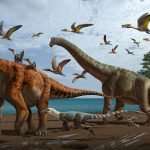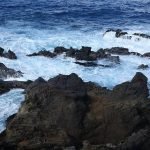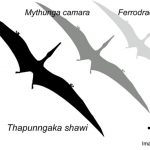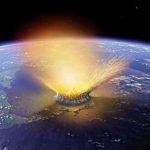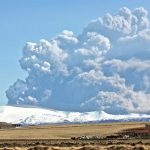Earth’s magnetic field could help date ancient archaeological artifacts
Archaeologists traditionally rely on finding organic remains for radiocarbon dating to pinpoint new finds in time, but often these are not found on sites...
Fizzing sodium could explain asteroid Phaethon’s cometlike activity
Models and lab tests suggest the asteroid could be venting sodium vapor as it orbits close to the Sun, explaining its increase in brightness.
As...
Scientists find first giant dinosaur fossils from early Cretaceous Hami pterosaur fauna
A joint Sino-Brazilian research team led by Dr. WANG Xiaolin from the Institute of Vertebrate Paleontology and Paleoanthropology (IVPP) of the Chinese Academy of...
Astronomers find a nearby star that a spitting image of a young sun
Our Sun is about 4.6 billion years old.
We know that from models of Sun-like stars, as well as through our observations of other stars...
Drone could help people find fresh water in the sea
The people of Easter Island appeared to drink directly from the sea, European explorers reported in the late 1700s.
And today, you can see animals...
Scientists find a ‘fearsome dragon’ that soared over outback Queensland
Australia’s largest flying reptile has been uncovered, a pterosaur with an estimated seven-meter wingspan that soared like a dragon above the ancient, vast inland...
Earth’s inner core is growing more on one side than the other – here’s...
More than 5,000 kilometers beneath us, Earth’s solid metal inner core wasn’t discovered until 1936.
Almost a century later, we’re still struggling to answer basic...
Scientists figure out how the asteroid belt attacked the dinosaurs
How do you track an asteroid that hit the Earth over 60 million years ago?
By using a combination of geology and computer simulations, at...
Minor volcanic eruptions could cascade into global catastrophe, shows study
Currently, much of the thinking around risks posed by volcanoes follows a simple equation: the bigger the likely eruption, the worse it will be...
Apollo lunar samples solve mystery of the moon’s magnetic shield
In 2024, a new age of space exploration will begin when NASA sends astronauts to the moon as part of their Artemis mission, a...



